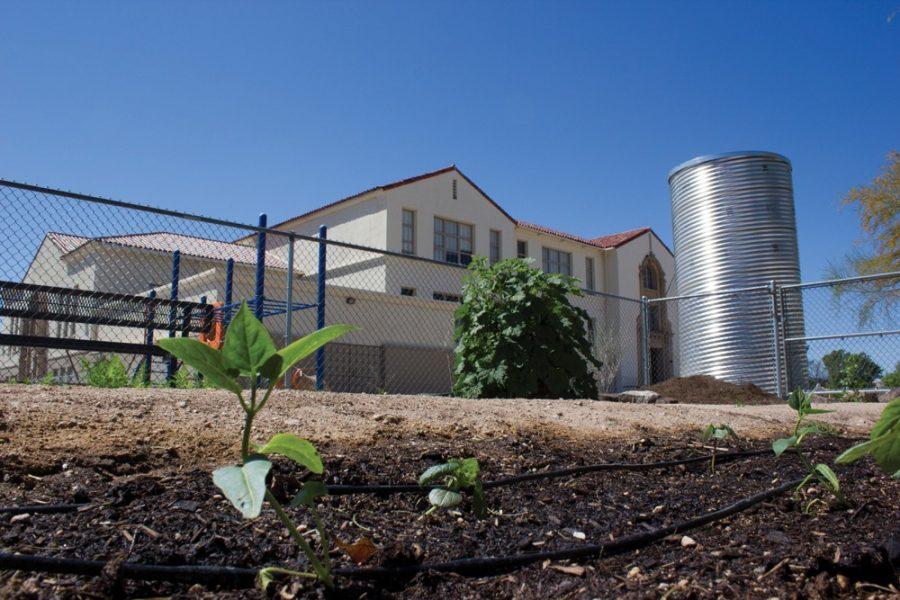A program that originally began as a course internship with six students from the UA School of Geography and Development has become a growing community initiative.
In collaboration with the Tucson Community Food Bank, The Community School and Garden program aims to help develop school gardens in local Tucson schools.
Sallie Marston, a professor in the School of Geography and Development and the program’s director, contributed to the program back in 2009, offering the internship as independent study for students to gain extra credit. Among the first to jump-start the program is field coordinator and graduate student Morgan Apicella, who approached The Community Food Bank of Southern Arizona
and offered to help teach an urban agriculture class.
The class would combine gardening skills with social justice issues, adding to the food bank’s ongoing support for school gardens, which was becoming an overwhelming demand. Now, the program has grown to 53 student interns in 10 schools and is working to expand to high schools with the help of funds from the UA’s Green Fund, the College of Agriculture and Life Sciences, the College of Science, and Water, Environmental and Energy Solutions.
UA interns from various majors work with each school’s students, incorporating subjects like math, literature and science while showing students how to develop and maintain a garden. Students learn these skills by growing their own fruits, vegetables and even raising hens.
Looking back, Marston said she never expected such a positive turnout. She credits the interns’ drive to work in the community to its success.
“This has been a big jump for us,” said Marston. “It started really small. I thought of it as a one-off thing. People came to me and asked for support … I could see a great need for these neighborhoods, where most students are under free lunch in schools and don’t have adequate resources. We wanted to seek the best interns to supply the program and provide support for these schools.”
Schools participating in the program since 2010 include Manzo Elementary and Ochoa Elementary, both of which are working to include the gardens more in their curriculums. Manzo runs a Reconciliation Ecology program run by counselor Moses Thompson, who uses the garden as a tool to implement counseling.
Through participation in garden activities, students learn to improve anger management and use cooperation in group projects. Ochoa Elementary staff said they hope to include music education into the program through the inclusion of a garden outside of the classroom.
Sophia Jones, a geography and environmental studies senior and an intern for the program, developes math lessons for students. One of the goals is to introduce math to students, which will extend beyond the classroom and into practical situations, such as measuring the planting space for a watermelon.
“It’s rewarding to work with the children. They make you think about things you normally wouldn’t,” Jones said. “When you see how excited they are about working in the garden, the work seems even more exciting. I feel I can teach better when I am learning things from them.”
Brandon Iker, a doctoral student in water, soil and environmental sciences, highlights the program’s potential by looking at the bigger picture. His work lies in the development of the gardens, contributing to projects in schools like Manzo, which is looking to add a native pollinator garden this year.
Iker said his vision for the future is to expand into a K-12 entrance program, which would prepare students to pursue majors in ecology or environmental studies. By starting early, Iker said he believes programs like these raise awareness in communities lacking access to healthier foods and provide a better understanding of how to solve these issues.
“This is about informing the kids on the source of their food and integrating basic education into it,” said Iker. “These communities need to have fresh food and you can’t get that in the back of a truck. It’s cool to see skilled, trained individuals making change and you create a perfect storm of people with similar ambitions.”
With the program’s recent growth, Marston said opportunities that have opened up present learning through a mutual process.
“Each garden is different — different kids, different space, different neighborhoods — but every one enables the kids to feel confident that they can learn,” said Marston. “These kids have realized that they don’t have to be experts to make change in their communities.”









